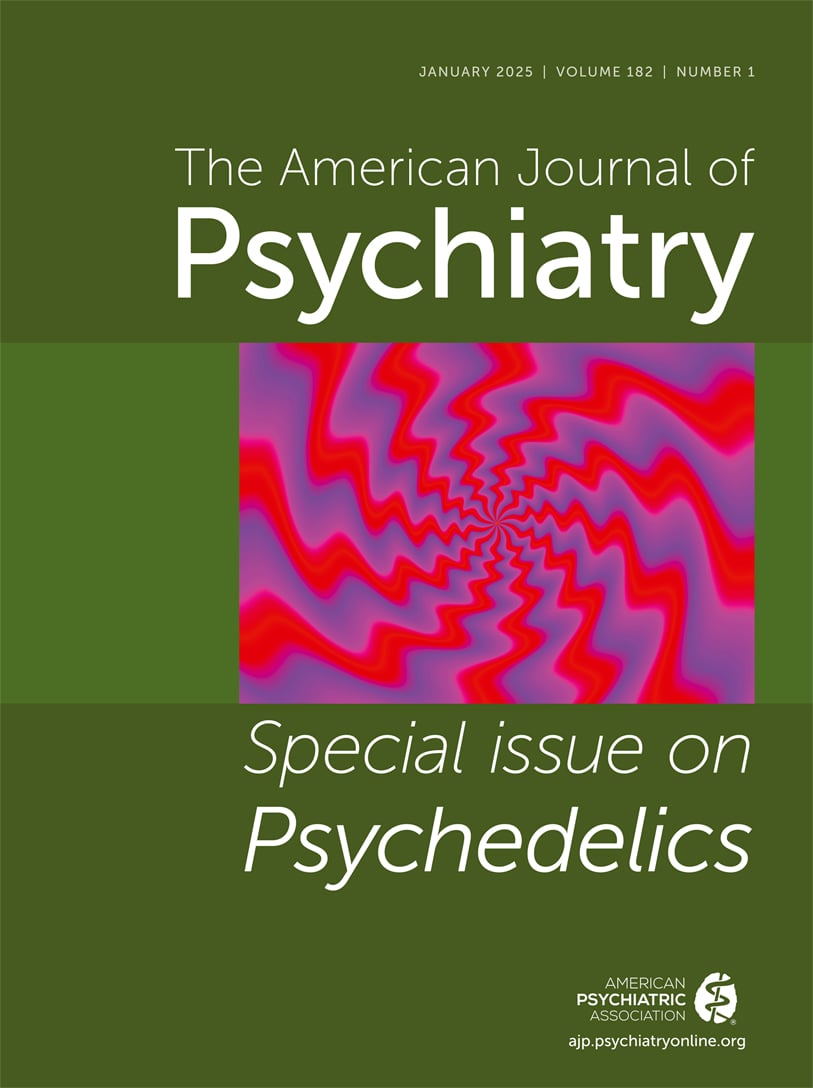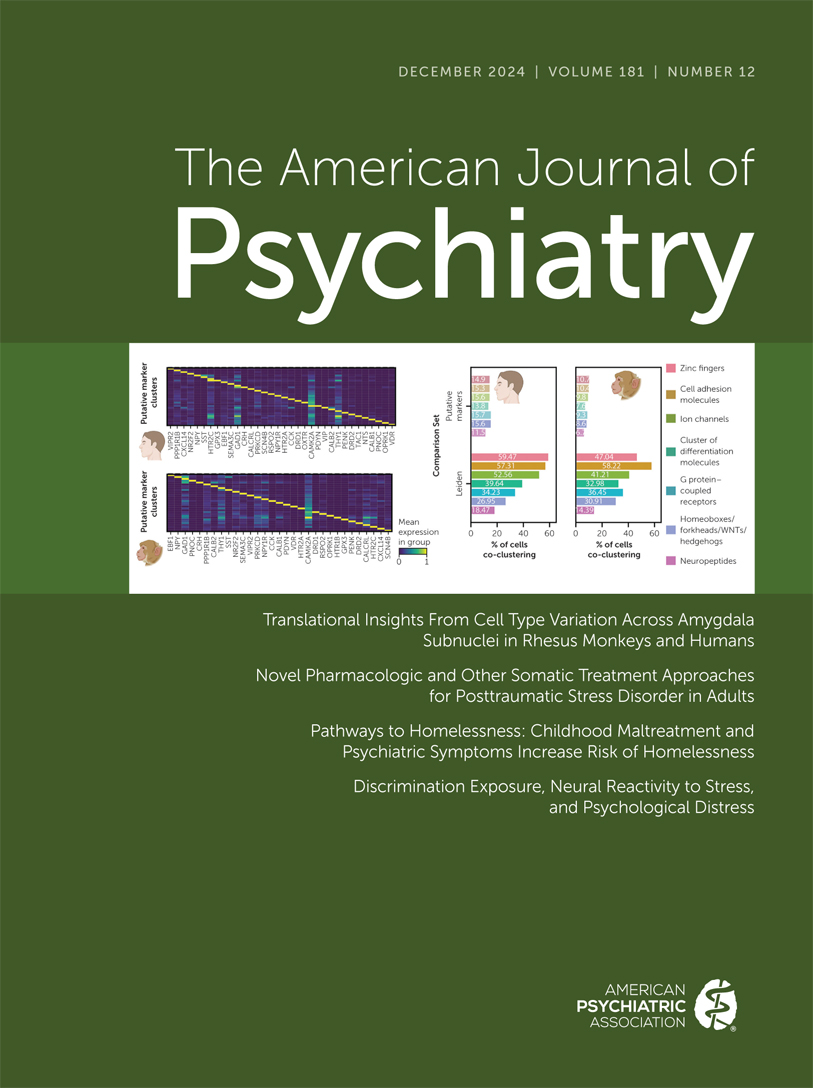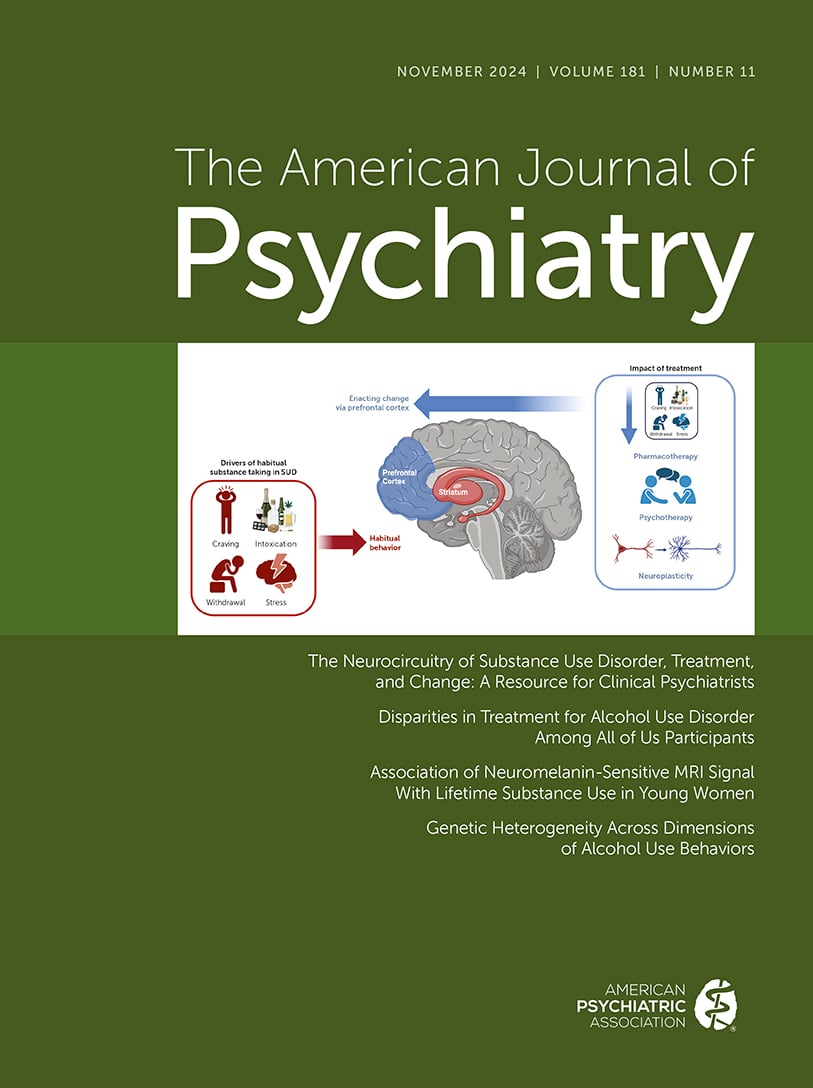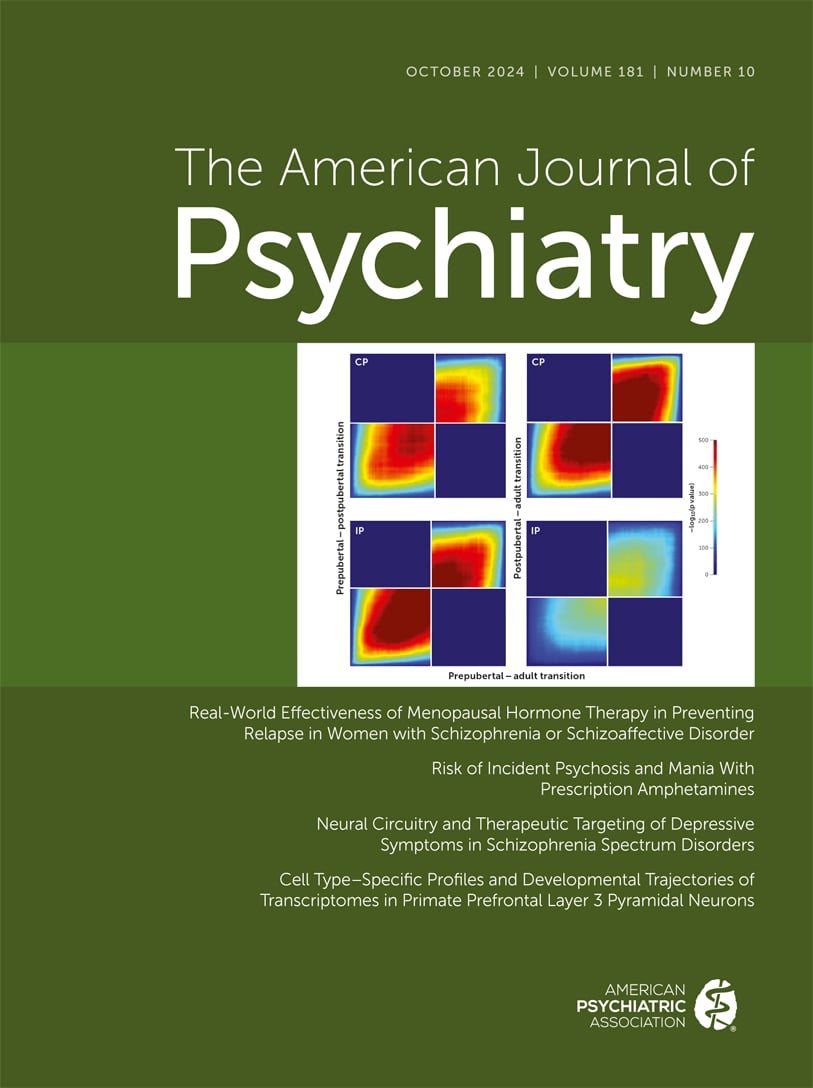American Journal of Psychiatry
- Volume 132
- Number 3
- March 1975
Publication date: 01 March 1975
Pages221–224The role of psychotherapist carries with it special stresses to which many professionals react with depressive feelings, particularly in mid- life. Psychotherapists who participated in small group sessions at two annual institutes of the American Group ...
https://doi.org/10.1176/ajp.132.3.221Publication date: 01 March 1975
Pages225–231The author describes an orderly progression of clinical syndromes (euphoria, dysphoria, paranoid psychosis) with cocaine use that is related to dosage, chronicity, and genetic and experiential predispositions. That affective alternations are caused by a ...
https://doi.org/10.1176/ajp.132.3.225Publication date: 01 March 1975
Pages232–235The need for evaluation of psychiatric services is becoming more and more apparent as third-party coverage becomes more available. A variety of expensive and complex data and computer systems have been developed. Small institutions and programs, however, ...
https://doi.org/10.1176/ajp.132.3.232Publication date: 01 March 1975
Pages236–240The authors present guidelines based on their experience with a family planning program for patients in mental hospitals. They believe that informed consent for these patients should include an adequate knowledge base, the patients' competence to make ...
https://doi.org/10.1176/ajp.132.3.236Publication date: 01 March 1975
Pages241–245The authors report on a one-year follow-up of 76 hyperactive boys who had participated in a comparative study of methylphenidate, imipramine, and placebo. They found that there was a higher rate of discontinuance of imipramine than of methylphenidate in ...
https://doi.org/10.1176/ajp.132.3.241Publication date: 01 March 1975
Pages246–250The authors compared a groups of heroin-dependent American servicemen stationed in Thailand with a matched control groups of men not dependent on heroin. The data gathered regarding social history, attitudes, work record, previous drug use, personality, ...
https://doi.org/10.1176/ajp.132.3.246Publication date: 01 March 1975
Pages251–254The author describes the impact that implementation of California's new mental health law and of its amendments has had on the development of community mental health programs. The new legislation has acted as a catalyst to the growth of local mental ...
https://doi.org/10.1176/ajp.132.3.251Publication date: 01 March 1975
Pages255–258The authors analyzed follow-up data collected by an Indian counselor and a psychiatrist on 83 American Indian alcoholic men. Follow-up status was judged by an interdisciplinary panel according to a six-step rating scale. The 44 percent improvement rate ...
https://doi.org/10.1176/ajp.132.3.255Publication date: 01 March 1975
Pages259–262The author states the psychiatry must work at defining its boundaries as a discipline before the question of how to educate future practitioners can be answered. The medical student is presented with a bewildering array of approaches to psychiatric ...
https://doi.org/10.1176/ajp.132.3.259Publication date: 01 March 1975
Pages263–267The authors used a questionnaire technique to determine the magnitude of the problem of emotional illness and poor performance during psychiatric residency, the procedures that are used to screen for or help disturbed residents, and characteristics that ...
https://doi.org/10.1176/ajp.132.3.263Publication date: 01 March 1975
Pages267–270The community setting arouses disturbing feelings (of anxiety, loneliness, anger, and disappointment) within the resident in a manner that is both unique and potentially constructive for his development as a clinician. The examination of these feelings in ...
https://doi.org/10.1176/ajp.132.3.267Publication date: 01 March 1975
Pages270–274The authors administered a questionnaire including statements regarding controversies in psychiatric education to 86 residents in six programs in the Washington, D.C./Baltimore, Md., area. The residents were asked for their opinions on educational ...
https://doi.org/10.1176/ajp.132.3.270Publication date: 01 March 1975
Pages274–277The authors note that the elimination of the internship requirement for board certification has engendered much discussion and has called attention to the need for further study of training in psychiatry. To help clarify the issue, they investigated ...
https://doi.org/10.1176/ajp.132.3.274Publication date: 01 March 1975
Pages277–280The author notes that the end of the postresidency military obligation necessitates earlier career decision making for the senior psychiatric resident. This problem is seen to be exacerbated by the eclectic nature of most psychiatric training. Issues for ...
https://doi.org/10.1176/ajp.132.3.277Publication date: 01 March 1975
Pages283–285Two patients with severe Parkinson's disease were treated with electroconvulsive therapy for a supervening depression. Not only did the symptoms of depression clear up after only four treatments, but the parkinsonian signs also showed striking and ...
https://doi.org/10.1176/ajp.132.3.283Publication date: 01 March 1975
Pages285–287Previous studies of attempted suicide have cast doubt on the value of assessing psychological intent. By identifying a moderating variable, namely, the attempter's preconceptions about the lethality of his act, the authors were able to solve the puzzle of ...
https://doi.org/10.1176/ajp.132.3.285Publication date: 01 March 1975
Pages288–290The authors note that previous data on the role of biological factors in homosexuality have been suggestive rather than definitive. They investigated hormonal metabolism in heterosexual and homosexual men and found no indication of disturbed functioning ...
https://doi.org/10.1176/ajp.132.3.288Publication date: 01 March 1975
Pages291–292Because of the predictions of partial obsolescence for psychiatry as a profession and because of the increasing pressures of government, third- party payers, and a patient population that will no longer blindly follow physicians, psychiatrists must face ...
https://doi.org/10.1176/ajp.132.3.291Publication date: 01 March 1975
Pages293–295The author describes three cases in which the frequency and intensity of night terrors associated with the posttraumatic syndrome were greatly lessened by administration of imipramine; in one case, the night terrors disappeared completely. Possible ...
https://doi.org/10.1176/ajp.132.3.293Article
Article
Article
Article
Past Issues
View Issues Archive
Vol. 182 | No. 1

Vol. 181 | No. 12

Vol. 181 | No. 11
